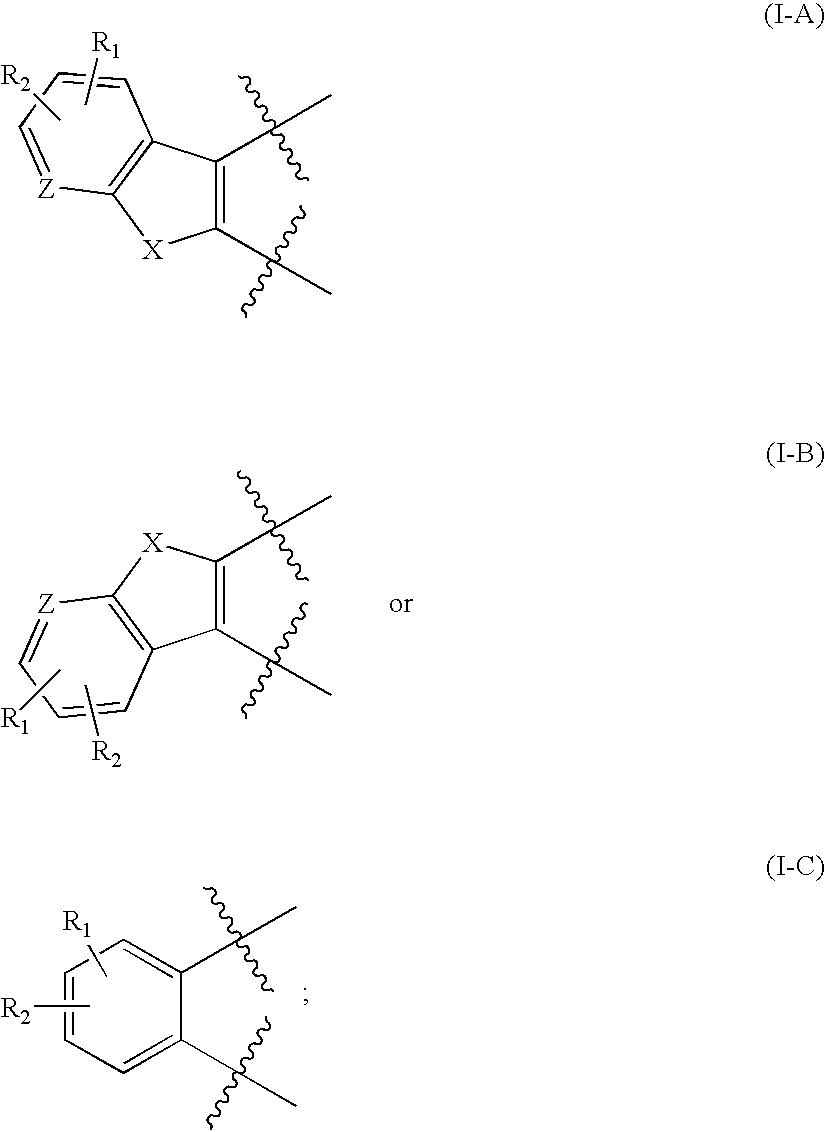Protein kinase inhibitors
a protein kinase and inhibitor technology, applied in the field of compound compounds, can solve the problems of cell cycle arrest, inability to normalize cell proliferation, and inability to activate proto-oncogenes in the wrong way
- Summary
- Abstract
- Description
- Claims
- Application Information
AI Technical Summary
Benefits of technology
Problems solved by technology
Method used
Image
Examples
example 1
Aurora Sequence and Structure Analysis
[0241] A PSI-BLAST search (NCBI) was performed with the sequence of the kinase portion of human aurora-1 and aurora-2 kinases and high sequence similarities were found to porcine heart bovine cAMP-dependent kinase (PDB code 1CDK), murine cAMP-dependent kinase (1APM), and C. elegans twitchin kinase (1KOA), whose three-dimensional structures have been solved. The three manually aligned S / T kinase domain sequences with their respective secondary structures were viewed in Clustal X (FIG. 2).
[0242] The aurora-1 or aurora-2 sequences were inputted into the tertiary structure prediction programs THREADER and 3D-PSSM, which compare primary sequences with all of the known three-dimensional structures in the Brookhaven Protein Data Bank. The output is composed of the optimally aligned, lowest-energy, three-dimensional structures that are similar to the aurora kinases. The top structural matches were bovine 1CDK, murine 1APM and 1KOA, confirming that the...
example 2
Aurora Homology Modeling
[0243] The 1CDK, 1APM and 1KOA tertiary structures provided the three-dimensional templates for the homology modeling of aurora-1 and aurora-2 kinases. The crystal structure coordinates for the above serine / tyrosine kinase domains were obtained from the Protein Data Bank. These domains were pair-wise superimposed onto each other using the program SAP. The structural alignments produced by the SAP program were fine-tuned manually to better match residues within the regular secondary structural elements.
[0244] Structural models were built of aurora-1 and 2 using 1CDK as the template structure. The final aurora-2 model (FIG. 3) was analyzed using Profile-3D. The Profile-3D and 3D-1 D score plots of the model were positive over the entire length of protein in a moving-window scan to the template structure. Additionally, the PROCHECK program was used to verify the correct geometry of the dihedral angles and the handedness of the aurora-2 model.
example 3
Aurora Molecular Dynamics (MD) and Docking Analysis
[0245] MD simulations were performed in the canonical ensemble (NVT) at 300° K using the CFF force field implemented in the Discover—3 program (version 2.9.5). Dynamics were equilibrated for 10 picoseconds with time steps of 1 femtosecond and continued for 10-picosecond simulations. A nonbonded cutoff distance of 8 Å and a distance-dependent dielectric constant (ε=5 rij) for water were used to simulate the aqueous media. All of the bonds to hydrogen were constrained. Dynamic trajectories were recorded every 0.5 picoseconds for analysis. The resulting low energy structure was extracted and energy-minimized to 0.001 kcal / mol / Å. To examine the conformational changes that occur during MD, the root mean square (rms) deviations were calculated from trajectories at 0.5-picosecond intervals and compared to the Cα backbone of cAMP-dependent PK. The rms deviation for the two superimposed structures was 0.42 Å. Furthermore, the rms deviations...
PUM
| Property | Measurement | Unit |
|---|---|---|
| temperature | aaaaa | aaaaa |
| temperature | aaaaa | aaaaa |
| temperature | aaaaa | aaaaa |
Abstract
Description
Claims
Application Information
 Login to View More
Login to View More - R&D
- Intellectual Property
- Life Sciences
- Materials
- Tech Scout
- Unparalleled Data Quality
- Higher Quality Content
- 60% Fewer Hallucinations
Browse by: Latest US Patents, China's latest patents, Technical Efficacy Thesaurus, Application Domain, Technology Topic, Popular Technical Reports.
© 2025 PatSnap. All rights reserved.Legal|Privacy policy|Modern Slavery Act Transparency Statement|Sitemap|About US| Contact US: help@patsnap.com



